
Les Misérables is a French historical novel by Victor Hugo, first published in 1862, that is considered one of the greatest novels of the 19th century. Les Misérables has been popularized through numerous adaptations for film, television and the stage, including a musical.
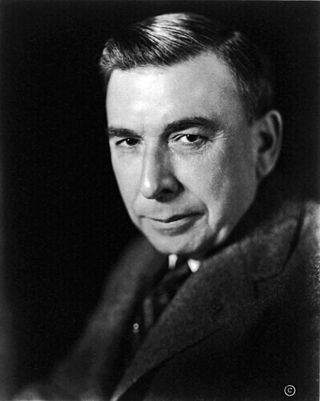
Newton Booth Tarkington was an American novelist and dramatist best known for his novels The Magnificent Ambersons (1918) and Alice Adams (1921). He is one of only four novelists to win the Pulitzer Prize for Fiction more than once, along with William Faulkner, John Updike, and Colson Whitehead. In the 1910s and 1920s he was considered the United States' greatest living author. Several of his stories were adapted to film.

William Washington Beaudine was an American film director. He was one of Hollywood's most prolific directors, turning out films in remarkable numbers and in a wide variety of genres.
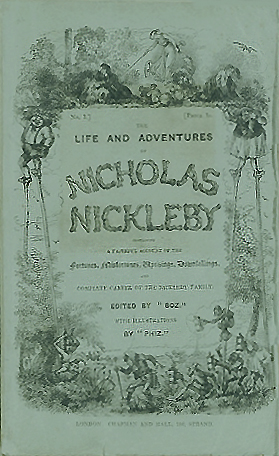
Nicholas Nickleby, or The Life and Adventures of Nicholas Nickleby, is the third novel by Charles Dickens, originally published as a serial from 1838 to 1839. The character of Nickleby is a young man who must support his mother and sister after his father dies.

Dombey and Son is a novel by English author Charles Dickens. It follows the fortunes of a shipping firm owner, who is frustrated at the lack of a son to follow him in his footsteps; he initially rejects his daughter's love before eventually becoming reconciled with her before his death.
Sweet Valley High is a series of young adult novels attributed to American author Francine Pascal, who presided over a team of ghostwriters to produce the series. The books chronicle the lives of identical twins Jessica and Elizabeth Wakefield, who live in the fictional Sweet Valley, California, a suburb near Los Angeles. The twins and their friends attend Sweet Valley High.

Northwest Passage is an historical novel by Kenneth Roberts, published in 1937. Told through the eyes of primary character Langdon Towne, much of the novel follows the exploits and character of Robert Rogers, the leader of Rogers' Rangers, who were a colonial force fighting with the British during the French and Indian War.

Girls on Film is the second novel in the A-List series by Zoey Dean. It was published in April 2004 through the Poppy imprint at Little, Brown Books for Young Readers.
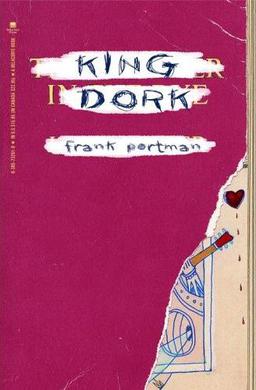
King Dork is the first novel by Frank Portman, published in 2006. A work of young adult fiction, the first-person narrative follows 14 year-old Tom Henderson during the first few months of his sophomore year of high school. Tom navigates the daily difficulties of a school filled with cruel peers and uncaring administrators, attempts to start a rock and roll band with his only close friend, negotiates the complexities of relating to girls, tries to piece together information about his deceased father through clues found in old novels, and evolves his relationship with his mother, stepfather, and sister. Titled after a 1999 song by Portman's band The Mr. T Experience, King Dork makes many references to rock bands, albums, and musicians.
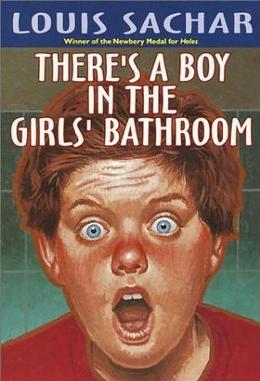
There's a Boy in the Girls' Bathroom is a 1987 juvenile fiction book from the author Louis Sachar, about a fifth-grade bully named Bradley whose behavior improves after intervention from a school counselor. The title comes from a point when a character, Jeff, is horribly embarrassed after accidentally entering the girls' bathroom while trying to go to the school counselor's office when a teacher gives him the wrong directions.
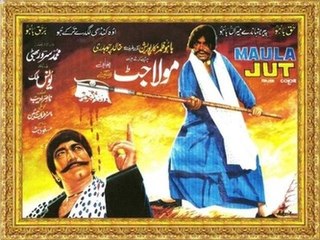
Maula Jatt, is a 1979 Pakistani Punjabi-language action, musical film directed by Yunus Malik and produced by Sarwar Bhatti. The film is an unofficial sequel to the 1975 Wehshi Jatt, starring Sultan Rahi as Maula Jatt and Mustafa Qureshi as his arch-rival Noori Natt.

Penrod and Sam is a 1937 drama film directed by William C. McGann and written by Lillie Hayward and Hugh Cummings. It was the third screen version of American writer Booth Tarkington's novel Penrod and Sam. The film stars Billy Mauch, Frank Craven, Spring Byington, Craig Reynolds, Harry Watson and Jackie Morrow. The film was released by Warner Bros. on February 28, 1937.

Bad Sister is a 1931 American pre-Code drama film directed by Hobart Henley. The screenplay by Edwin H. Knopf, Tom Reed, and Raymond L. Schrock is based on the 1913 novel The Flirt by Booth Tarkington, which had been filmed in 1916 and 1922.
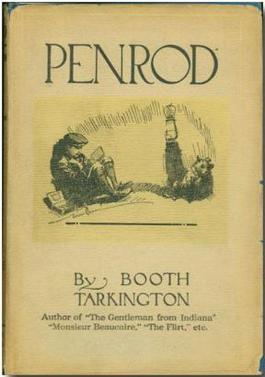
Penrod is a collection of comic sketches by Booth Tarkington that was first published in 1914. The book follows the misadventures of Penrod Schofield, an eleven-year-old boy growing up in the pre-World War I Midwestern United States, in a similar vein to The Adventures of Tom Sawyer. In Penrod, Tarkington established characters who appeared in two further books, Penrod and Sam (1916) and Penrod Jashber (1929). The three books were published together in one volume, Penrod: His Complete Story, in 1931.

Seventeen: A Tale of Youth and Summer Time and the Baxter Family Especially William is a humorous novel by Booth Tarkington that gently satirizes first love, in the person of a callow 17-year-old, William Sylvanus Baxter. Seventeen takes place in a small city in the Midwestern United States shortly before World War I. It was published as sketches in the Metropolitan Magazine in 1915 and 1916, and collected in a single volume by Harper and Brothers in 1916, when it was the bestselling novel in the United States.

Penrod Jashber is the third novel in a series by Booth Tarkington about the adventures of Penrod Schofield, an 11-year-old middle-class boy in a small city in the Midwest.

Frank Coghlan Jr. also known as Junior Coghlan, was an American actor who later became a career officer in the United States Navy and a naval aviator. He appeared in approximately 129 films and television programs between 1920 and 1974. During the 1920s and 1930s, he became a popular child and juvenile actor, appearing in films with Pola Negri, Jack Dempsey, William Haines, Shirley Temple, Mickey Rooney, William Boyd and Bette Davis. He appeared in early "Our Gang" comedies, but he is best known for the role of Billy Batson in the 1941 motion picture serial, and first comic book superhero film, Adventures of Captain Marvel. Coghlan later served 23 years as an aviator and officer in the U.S. Navy, from 1942 to 1965. After retiring from the Navy, he returned to acting and appeared in television, films, and commercials. He published an autobiography in 1992 and died in 2009 at age 93.

Love Laughs at Andy Hardy is a 1946 American comedy film directed by Willis Goldbeck and starring Mickey Rooney, Lewis Stone and Bonita Granville. It was produced by Metro-Goldwyn-Mayer. The film is also known under its American promotional title Uncle Andy Hardy. This was the fifteenth and penultimate film in the Andy Hardy series. The final installment, Andy Hardy Comes Home (1958), would be released 12 years later.
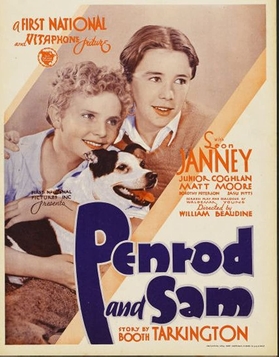
Penrod and Sam is a 1931 American pre-Code comedy film directed by William Beaudine and starring Leon Janney and Frank Coghlan Jr. It is an adaptation of the novel Penrod and Sam by Booth Tarkington. Beaudine had previously directed a 1923 silent version, and was invited to remake his earlier success.

Penrod is a 1922 American comedy film directed by Marshall Neilan and written by Lucita Squier. It is based on the 1914 novel Penrod by Booth Tarkington. The film stars Wesley Barry, Tully Marshall, Claire McDowell, John Harron, Gordon Griffith and Newton Hall. The film was released on February 20, 1922, by Associated First National Pictures.



















